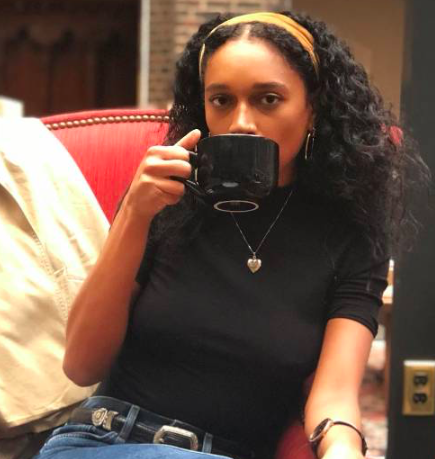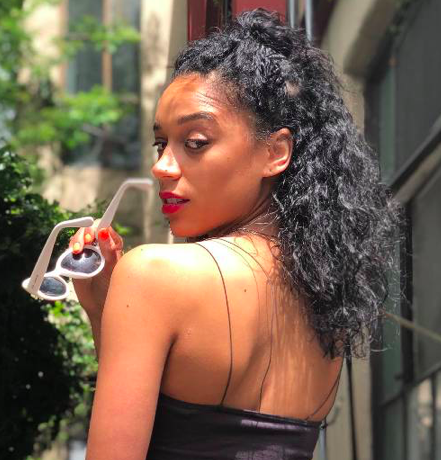New York City Is Taking A Stance on Equality For All, By Banning Discriminations On hairstyles
Why judge a book by its cover? In the society that we live in, there has always been a “silent” code of what is deemed ‘presentable’ and ‘sellable’ in the job scope . Regardless of qualifications for a position , or better yet, intellectual capabilities, appearances tend to reign supreme , and have consistently been subject to harassment and ridicule.
So, it became a pleasant surprise when at the beginning of this week, new guidelines implemented by the New York City Commission on Human Rights , will prevent the targeting of people of color ( black professionals) based on hair texture or hairstyle - at the office, school or in public spaces, and will now be recognized as racial discrimination.
This essential law applies to anyone in the greater New York City , but is aimed at alleviating the unequal treatment of black people — the guidelines are specific in citing the human rights of New York residents to maintain their “natural hair, treated or untreated hairstyles such as locs, cornrows, twists, braids, Bantu knots, fades, Afros, and/or the right to keep hair in an uncut or untrimmed state.”
In effect, the guidelines gives legal remedies to people who have faced punishment, threats, relegated or have been fired due to of the appearance of their hair - the city commission has the authority to levy penalties up to $250,000 on defendants in violation of the guidelines, and there’s no restriction on damages. The commission can also enforce internal policy changes and re- hirings at offending establishments.
Although this move is more than warranted, it was prompted in part by several investigations after complaints from workers at two separate Bronx businesses — a non-profit and a medical facility in the Morris Park and Morrisania sections respectively— workers at a restaurant in Howard Beach, Queens ; and, salon workers at an Upper East Side hair salon . (The guidelines do not interfere with health and safety precautions such as wearing your hair up in a bun, ponytail, or net, as long as the rules are the same for all parties involved.)
As of right now, there is no legal model in the federal court system for the protection of hair. In fact, last spring , the NAACP Legal Defense and Educational Fund requested that the United States Supreme Court review the case of Chastity Jones, a black woman who had her job offer revoked back in 2010 at an Alabama insurance company resulting from her refusal to get rid of her dreadlocs.
New York City’s human rights commission one of the most modern in the nation; it acknowledges more areas of discrimination than the federal law, including housing, employment, marital status, and pregnancy. Its legal administration bureau can hold investigations and has the right to subpoena witnesses to the stand as well as indict violations.
“There’s nothing keeping us from calling out these policies prohibiting natural hair or hairstyles most closely associated with black people, they are based on racist standards of appearance…” said Carmelyn P. Malalis, the commissioner and chairwoman of the New York City Commission on Human Rights.”
Growing up in New York, it’s unfortunately not very hard to find black men and women who can speak about personal accounts of how their hair has affected their lives in the most subtle and important ways, varying from double handed comments from their coworkers to their employers giving them ultimatums to quit the position or look more presentable such as straightening your hair out as a woman or shaving off your hair entirely as a man .
“Uncertainty about my hair was a familiar feeling, one I felt most prevalently from kindergarten through 12th grade. And prior to attending Howard University as an undergraduate, I hadn’t even fathomed the idea of 'letting my curls down' for any sort of social function, let alone a job."
"But slowly, I transitioned. And eventually, I embraced it. - Lindsey Ferguson - Law Student - Soon-to-be Corporate Attorney
The hairstyles have had a long professional toll on the status of black Americans in the workforce. Nearly 18% of Active United States soldiers are black, but it wasn’t until the recent years that the military dropped the prohibitions on the hairstyles that are a part of black culture. The Marines approved twists, breeds and locks ( mostly spelled as locs) in 2015 with some admonitions, and the army lifted its ban on dreadlocks in 2017 ( this is beyond recent).
Some black hairstyles are riddled in history as well. Wearing your hair in a ‘fro back in the ‘60s, was a political statement more than an aesthetic preference. Black men in the last couple of decades who shave designs into their hair as for the style, but also may get the backlash of perceived gang membership ( which is not even the case 99.9% of the time , but I digress).
Hair discrimination does not exclude race or age entirely. A number of cases have been reported on black students being punished or sent home because of their hairstyles. In December, the New Jersey state civil rights division and its interscholastic athletic association began separate investigations when school wrestler Andrew Johnson (who is black), was told to cut his locs off or risk forfeiting the match instead ( he complied and guess what? He still won!).
Similar instances in New York City could fall under the human rights commission’s expansive mandate, as do instances of retailers “outrage marketing” tactics that sell and display racist iconography.
The commission back in December as well issued a cease-and-desist order to Italian luxury fashion house Prada, after the SoHo store window was decorated with trinkets and key chains featuring the cryptic imagery of blackface.
via Business Insider
The company implemented training in the city’s human rights law for employees, executives, and independent contractors. It also immediately pulled the line of goods from its United States stores which is more than necessary to eradicate and make an example of being emotionally and historically illiterate to different types of cultures and traditions. It’s about time we owe it to others and ourselves the ability to be respectful and unafraid of the skin we were born with.
Cover image via Takepart



